Capturing “Just enough”
Data, Software and Metadata
with RO-Crate
Stian Soiland-Reyes
eScience lab, The University of Manchester
INDElab, University of Amsterdam
FAIR Festival 2021
FAIR Implementation Challenges & Solutions
2021-06-21
This work is licensed under a
Creative Commons Attribution 4.0 International License.


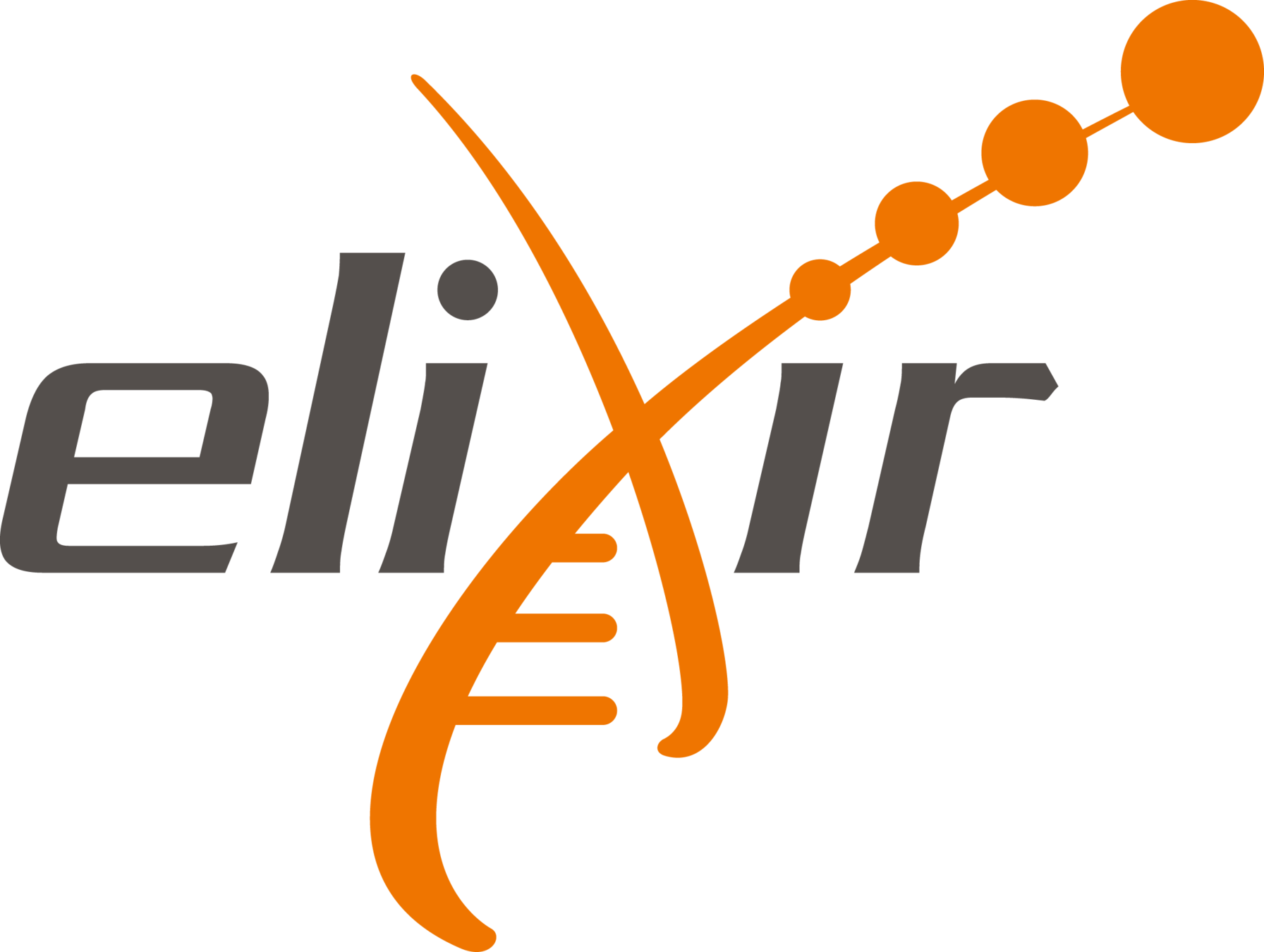



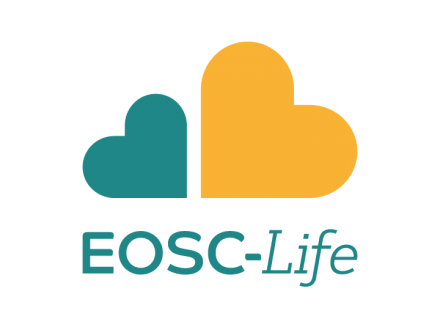


What is RO-Crate?

RO-Crate is method for self-decribed datasets as a digital object using a single Linked Data metadata document
Credit: Peter Sefton
Adapted from https://arkisto-platform.github.io/standards/ro-crate/
The dataset may contain any kind of
resource, about anything, in any format
as a file, URL or PID
Credit: Peter Sefton
Adapted from https://arkisto-platform.github.io/standards/ro-crate/

Each resource have a machine readable description in JSON-LD format
Credit: Peter Sefton
Adapted from https://arkisto-platform.github.io/standards/ro-crate/


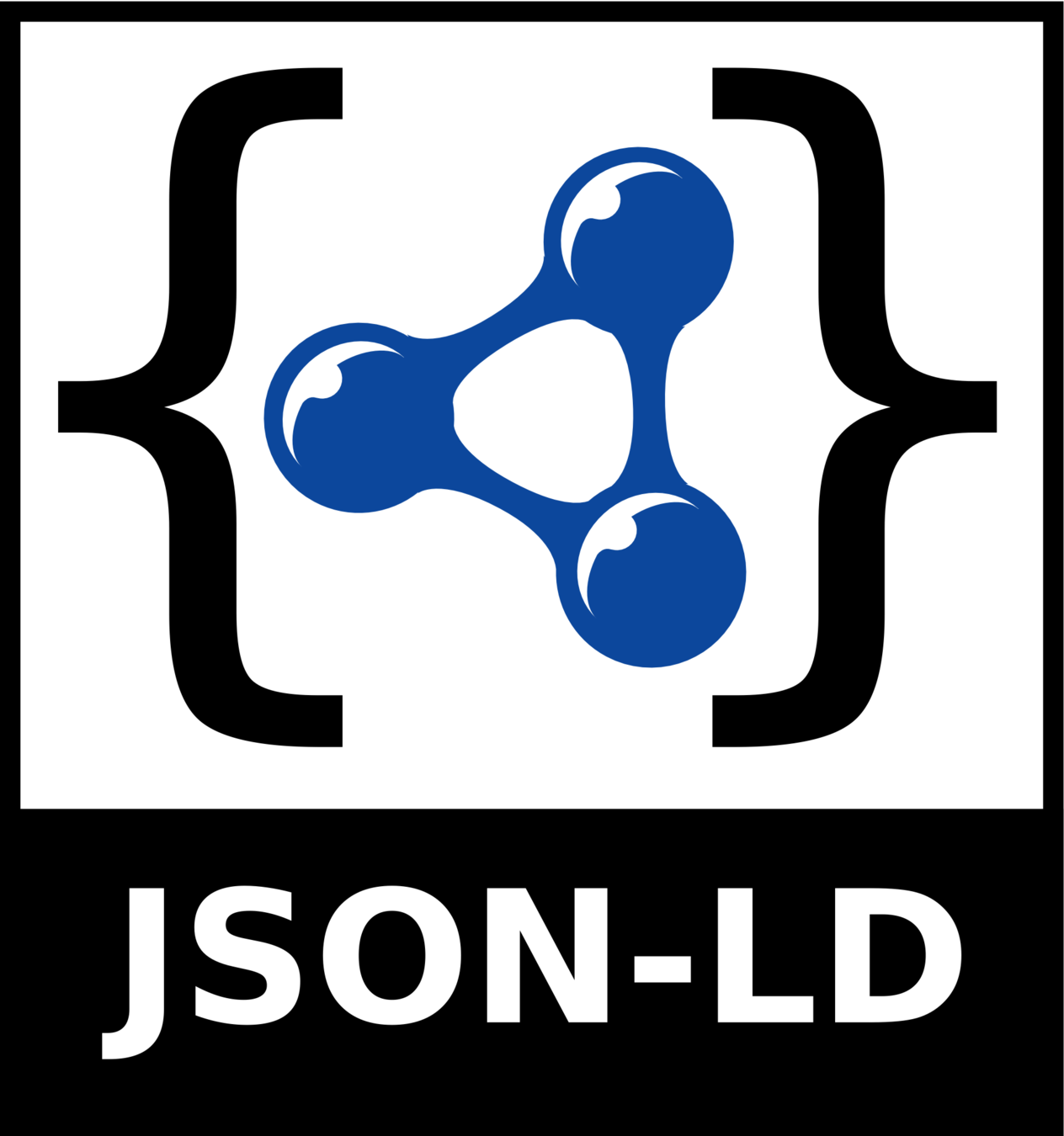
A human-readable description/preview in an HTML file that lives alongside the metadata
Credit: Peter Sefton
Adapted from https://arkisto-platform.github.io/standards/ro-crate/
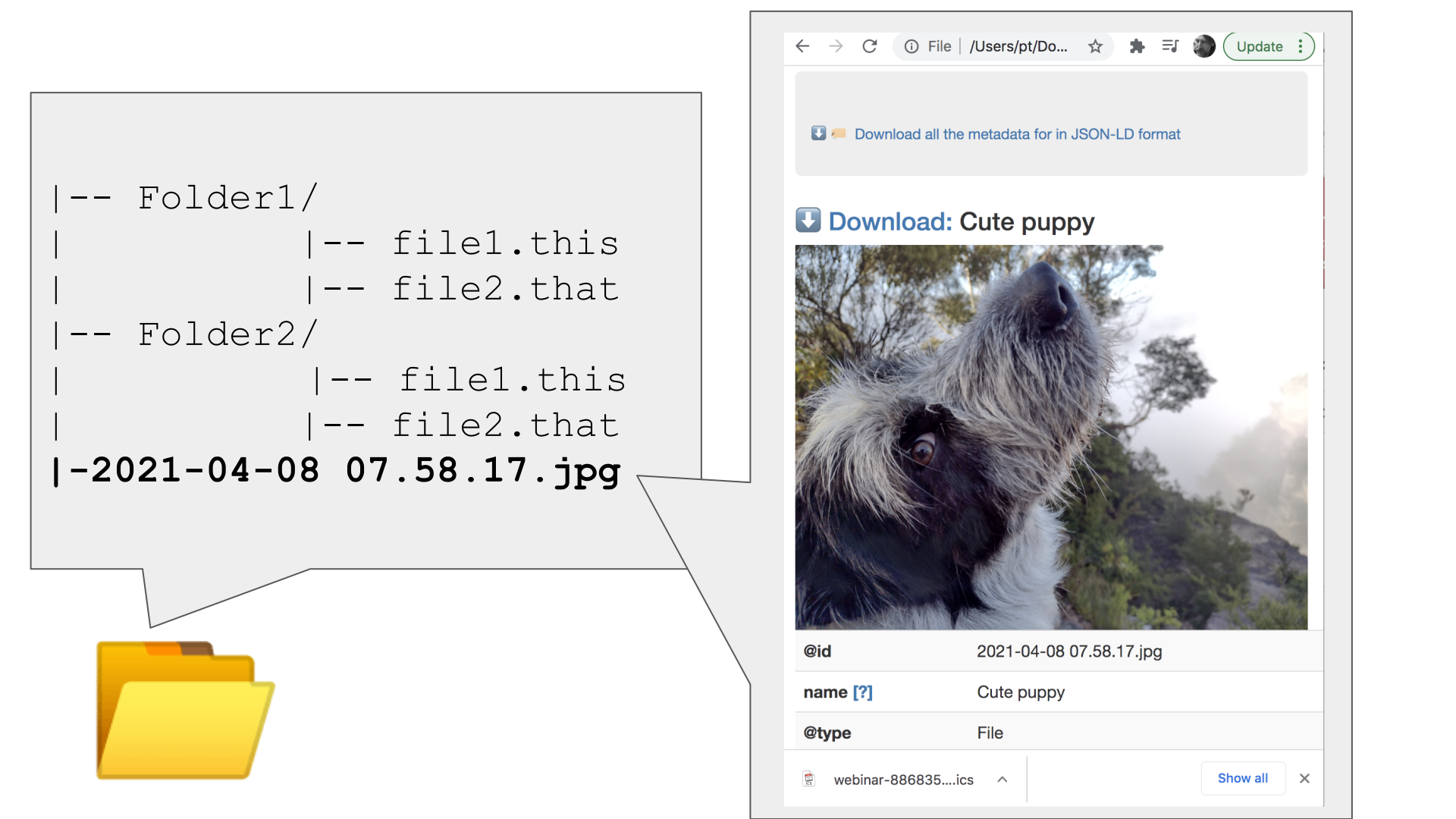
Provenance and workflow information can be included
– to assist in re-use of data and research processes
Credit: Peter Sefton
Adapted from https://arkisto-platform.github.io/standards/ro-crate/

RO-Crate Digital Objects may be packaged for distribution eg via Zip, Bagit and OCFL
– or simply be published on the Web
Credit: Peter Sefton
Adapted from https://arkisto-platform.github.io/standards/ro-crate/




RO-Crate capture Research Objects

Credit: Marco La Rosa, Peter Sefton
Making your own RO-Crate with Describo
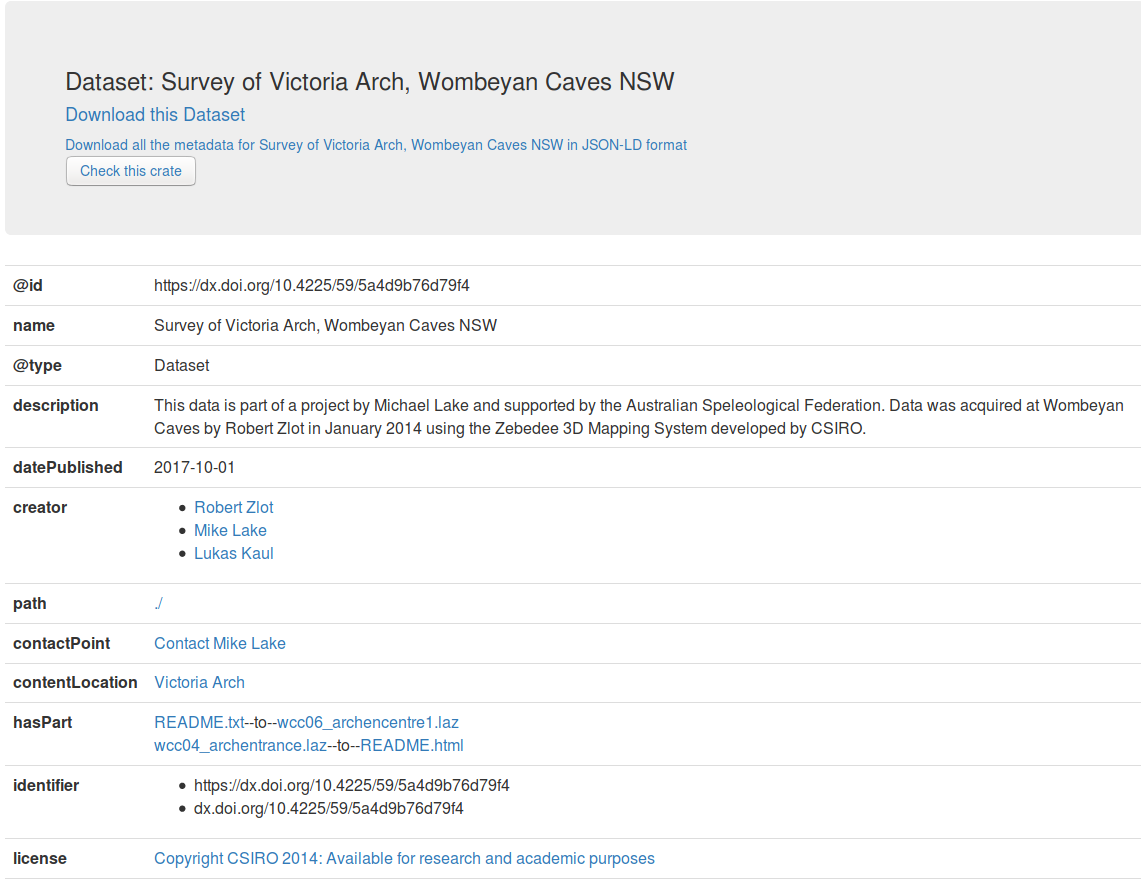
FAIR is not just machine-readable!
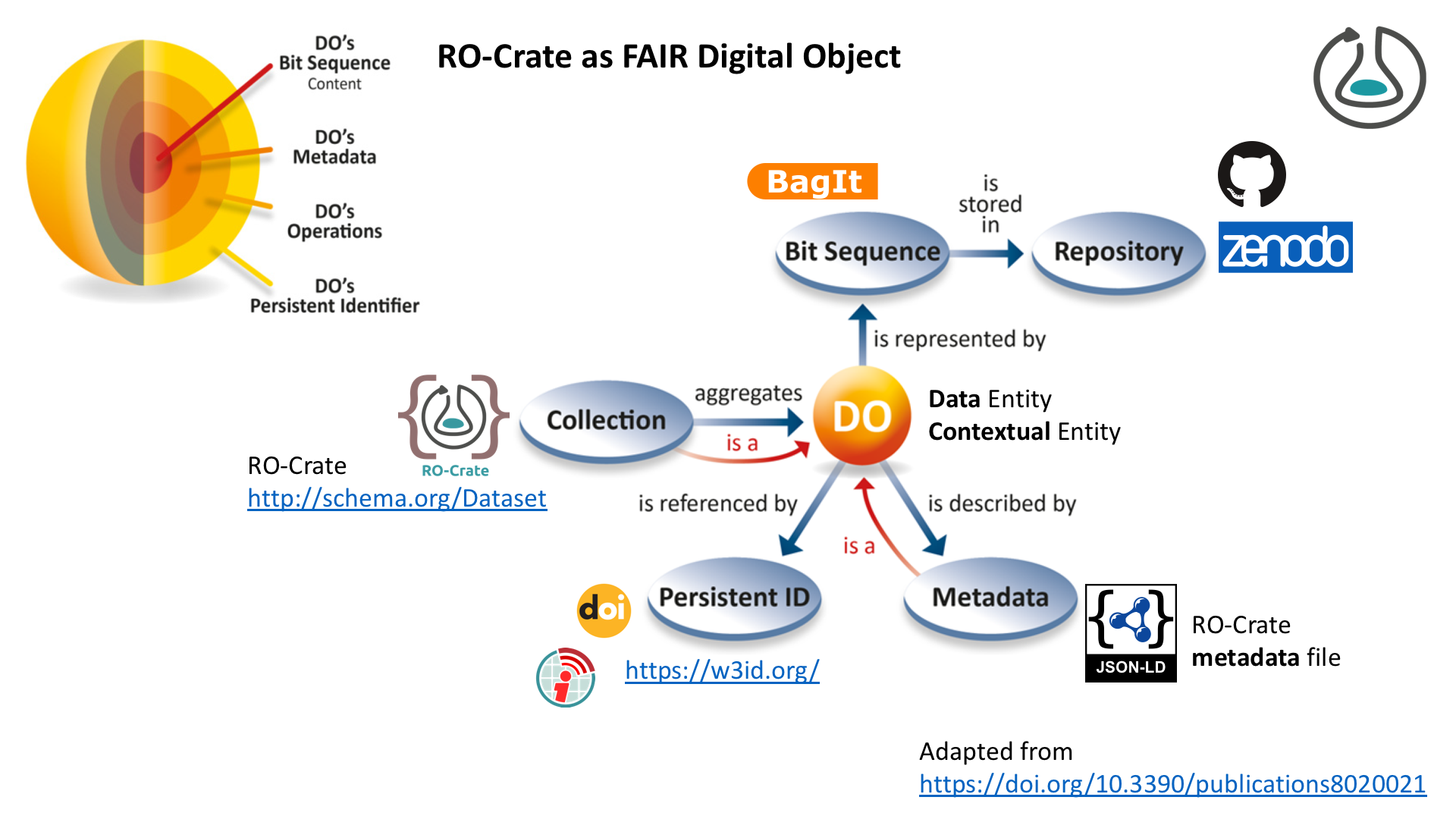
2. July 2021 CWFR call:
RO-Crate relationship with FDOs
RO-Crate as FAIR Digital Object (FDO)
+ FAIR Signposting




Capturing cultural heritage records
as RO-Crates

Credit: Oscar Corcho, Carole Goble
https://doi.org/10.5281/zenodo.4913285
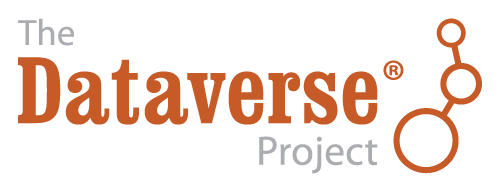
RO-Crate as a archival format
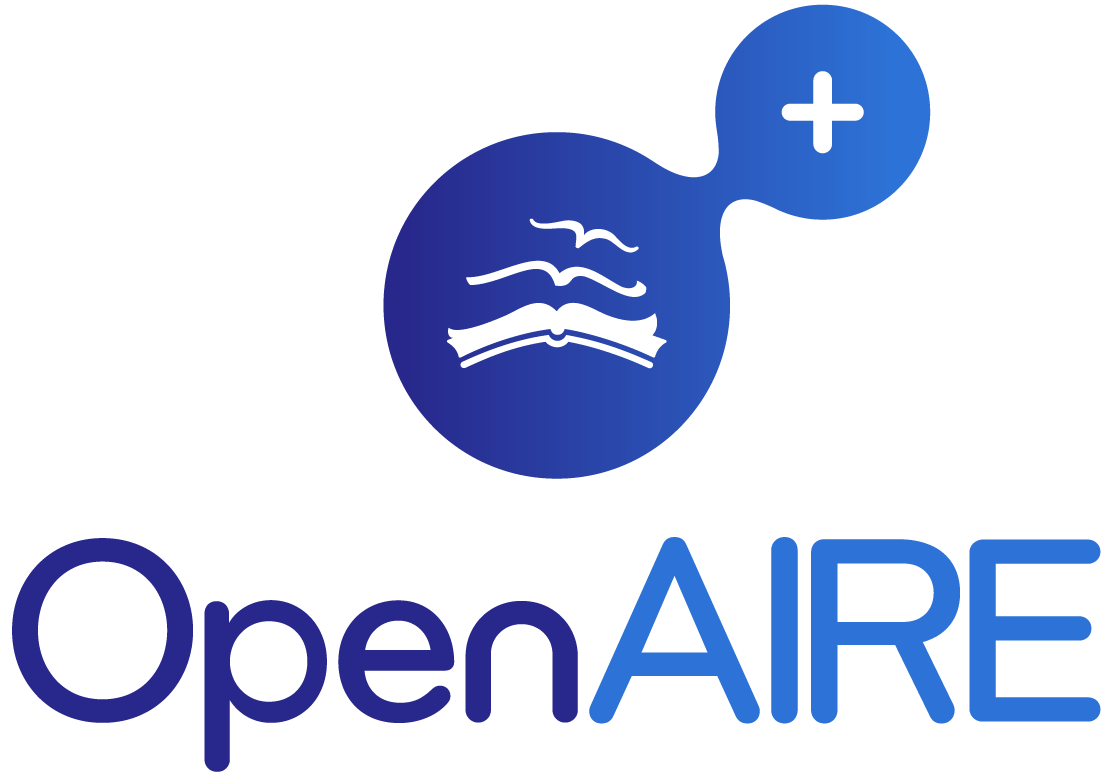

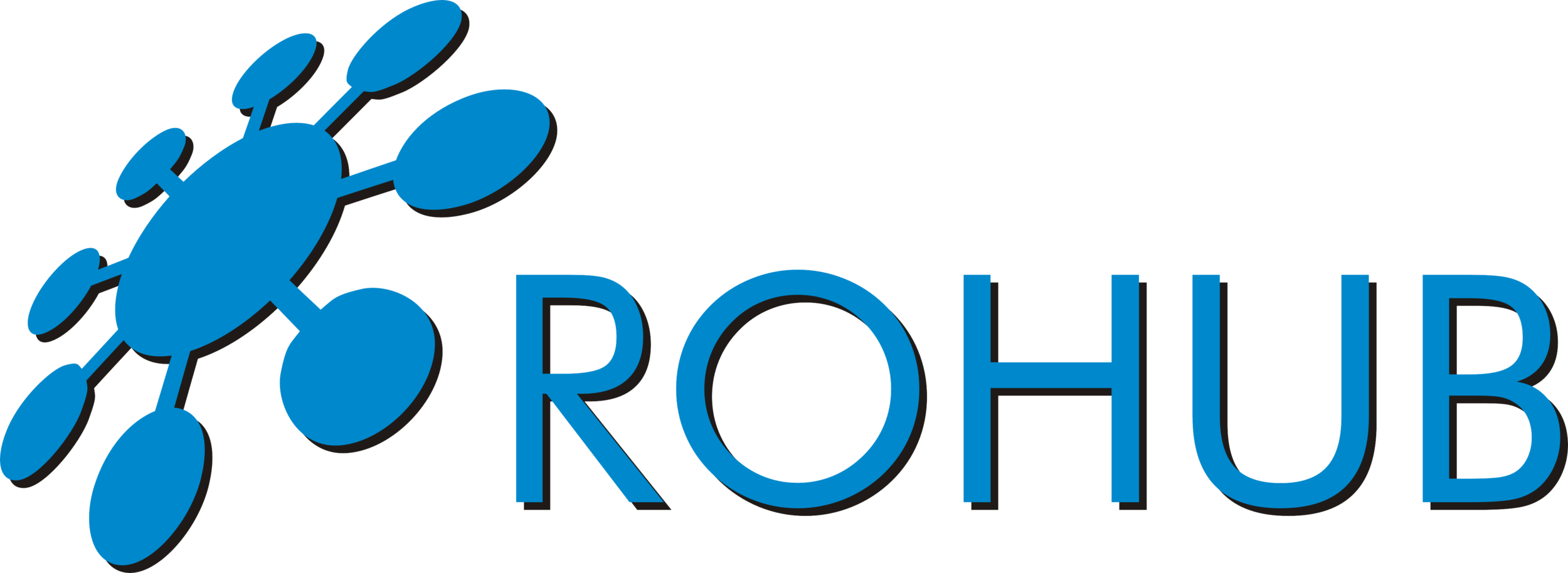

Metadata held alongside hetereogeneous data
Exchange mechanism (import/export)
Avoid repository vendor lock-in
Extensible metadata model






Describing workflows
with RO-Crate

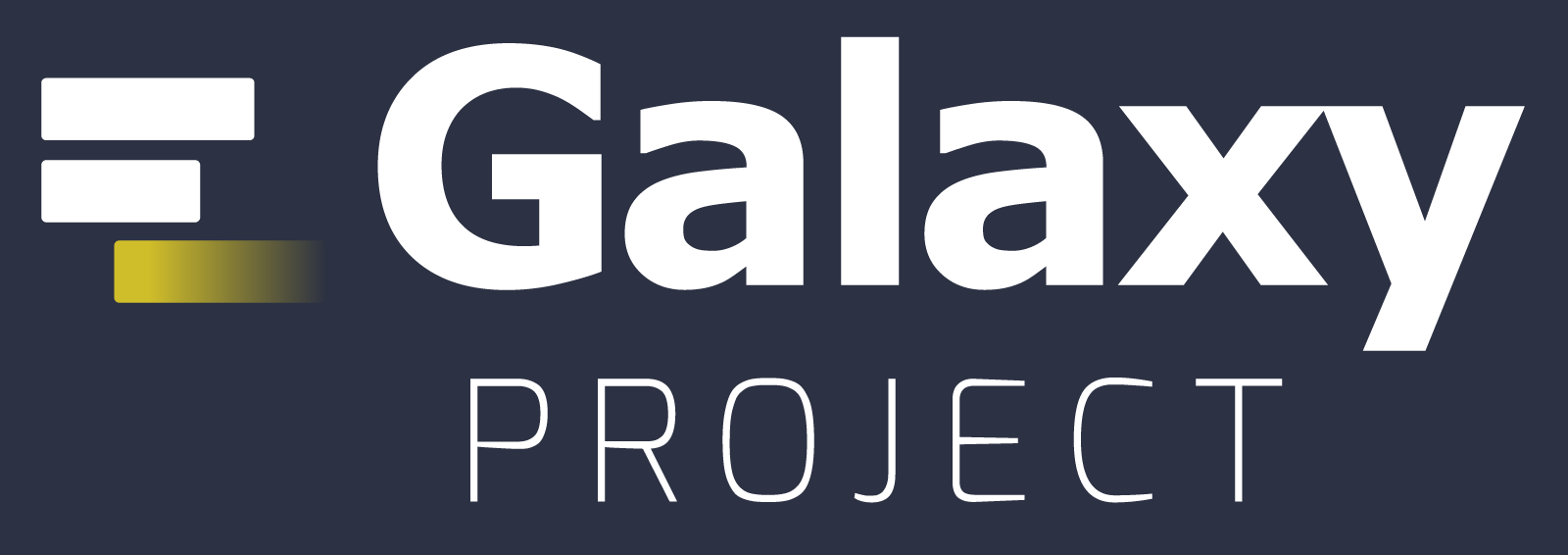



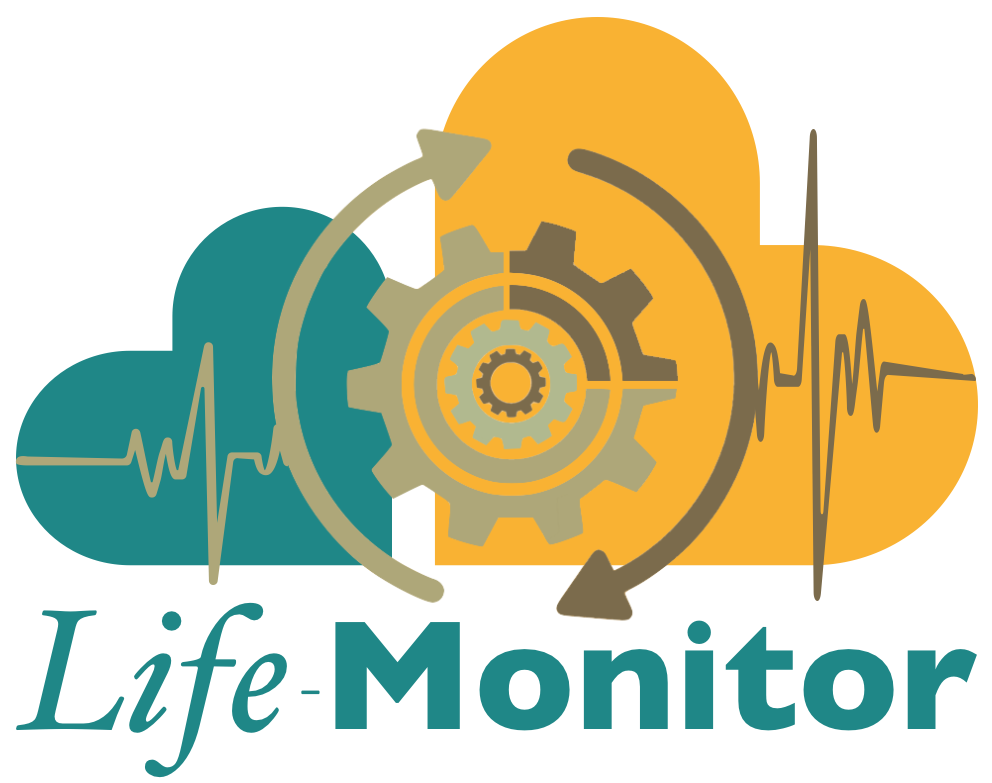
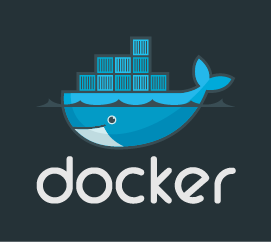




Containers
Describe workflow
Tests
Registry
Workflows
Authors and contributors
Credit: Carole Goble
Dataverse Community Meeting 2021
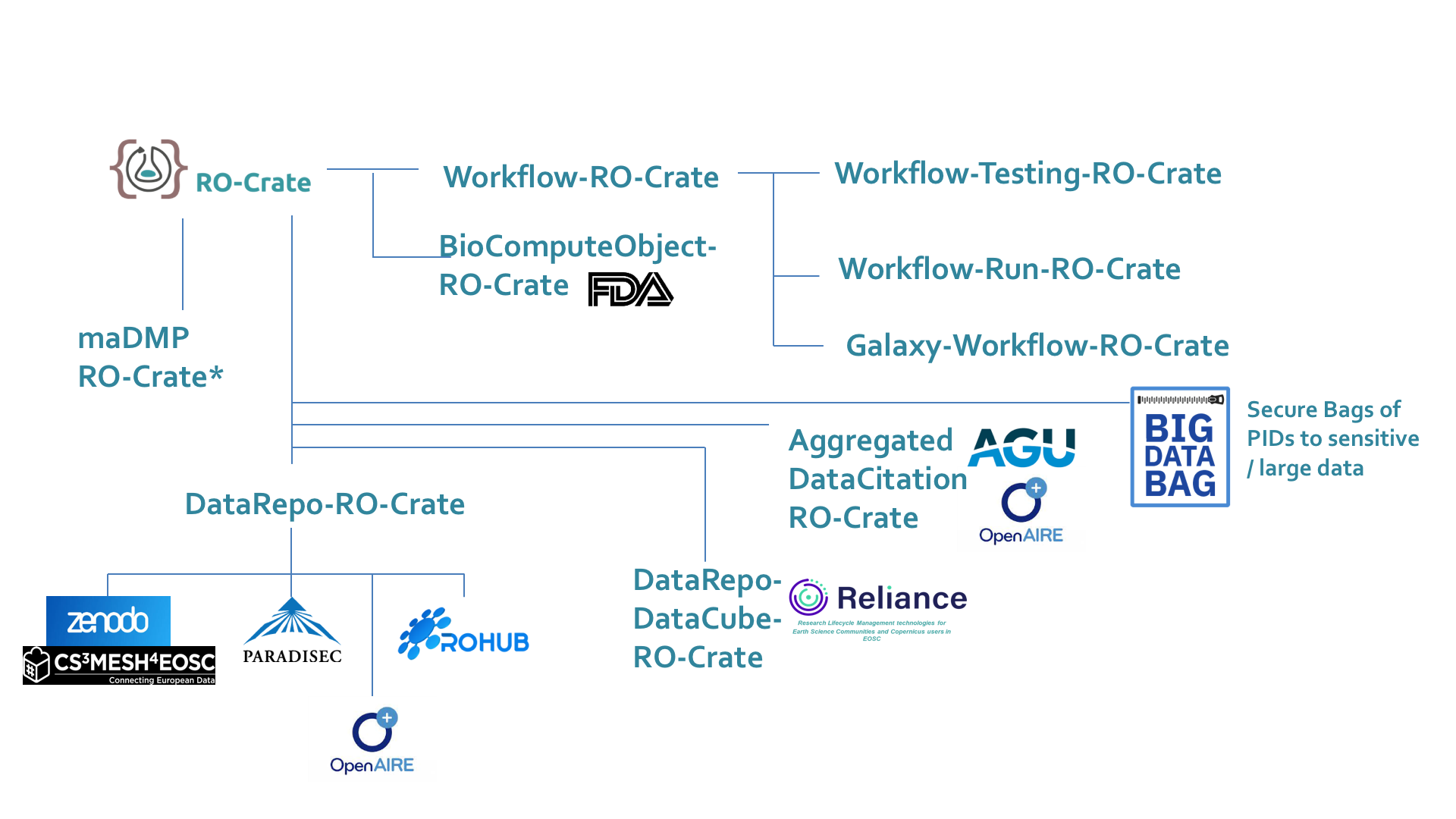
- Laura Rodríguez-Navas https://orcid.org/0000-0003-4929-1219
- Paul Walk https://orcid.org/0000-0003-1541-5631
- brandon whitehead https://orcid.org/0000-0002-0337-8610
- Mark Wilkinson https://orcid.org/0000-0001-6960-357X
- Paul Groth https://orcid.org/0000-0003-0183-6910
- Erich Bremer https://orcid.org/0000-0003-0223-1059
- LJ Garcia Castro https://orcid.org/0000-0003-3986-0510
- Karl Sebby https://orcid.org/0000-0001-6022-9825
- Alexander Kanitz https://orcid.org/0000-0002-3468-0652
- Ana Trisovic https://orcid.org/0000-0003-1991-0533
- Gavin Kennedy https://orcid.org/0000-0003-3910-0474
- Mark Graves https://orcid.org/0000-0003-3486-8193
- Jasper Koehorst https://orcid.org/0000-0001-8172-8981
- Simone Leo https://orcid.org/0000-0001-8271-5429
- Marc Portier https://orcid.org/0000-0002-9648-6484
- Paul Brack https://orcid.org/0000-0002-5432-2748
- Milan Ojsteršek https://orcid.org/0000-0003-1743-8300
- Bert Droesbeke https://orcid.org/0000-0003-0522-5674
- Chenxu Niu https://orcid.org/0000-0002-2142-1731
- Kosuke Tanabe https://orcid.org/0000-0002-9986-7223
- Tomasz Miksa https://orcid.org/0000-0002-4929-7875
- Marco La Rosa https://orcid.org/0000-0001-5383-6993
- Cedric Decruw https://github.com/cedricdcc
- Andreas Czerniak https://orcid.org/0000-0003-3883-4169
RO-Crate Community
- Peter Sefton https://orcid.org/0000-0002-3545-944X (co-chair)
- Stian Soiland-Reyes https://orcid.org/0000-0001-9842-9718 (co-chair)
- Eoghan Ó Carragáin https://orcid.org/0000-0001-8131-2150 (emeritus chair)
- Oscar Corcho https://orcid.org/0000-0002-9260-0753
- Daniel Garijo https://orcid.org/0000-0003-0454-7145
- Raul Palma https://orcid.org/0000-0003-4289-4922
- Frederik Coppens https://orcid.org/0000-0001-6565-5145
- Carole Goble https://orcid.org/0000-0003-1219-2137
- José María Fernández https://orcid.org/0000-0002-4806-5140
- Kyle Chard https://orcid.org/0000-0002-7370-4805
- Jose Manuel Gomez-Perez https://orcid.org/0000-0002-5491-6431
- Michael R Crusoe https://orcid.org/0000-0002-2961-9670
- Ignacio Eguinoa https://orcid.org/0000-0002-6190-122X
- Nick Juty https://orcid.org/0000-0002-2036-8350
- Kristi Holmes https://orcid.org/0000-0001-8420-5254
- Jason A. Clark https://orcid.org/0000-0002-3588-6257
- Salvador Capella-Gutierrez https://orcid.org/0000-0002-0309-604X
- Alasdair J. G. Gray https://orcid.org/0000-0002-5711-4872
- Stuart Owen https://orcid.org/0000-0003-2130-0865
- Alan R Williams https://orcid.org/0000-0003-3156-2105
- Giacomo Tartari https://orcid.org/0000-0003-1130-2154
- Finn Bacall https://orcid.org/0000-0002-0048-3300
- Thomas Thelen https://orcid.org/0000-0002-1756-2128
- Hervé Ménager https://orcid.org/0000-0002-7552-1009
The RO-Crate Community is open for anyone to join us!